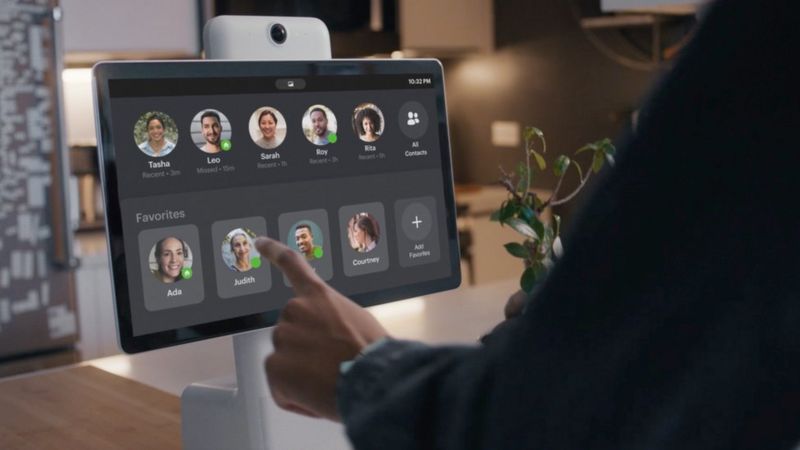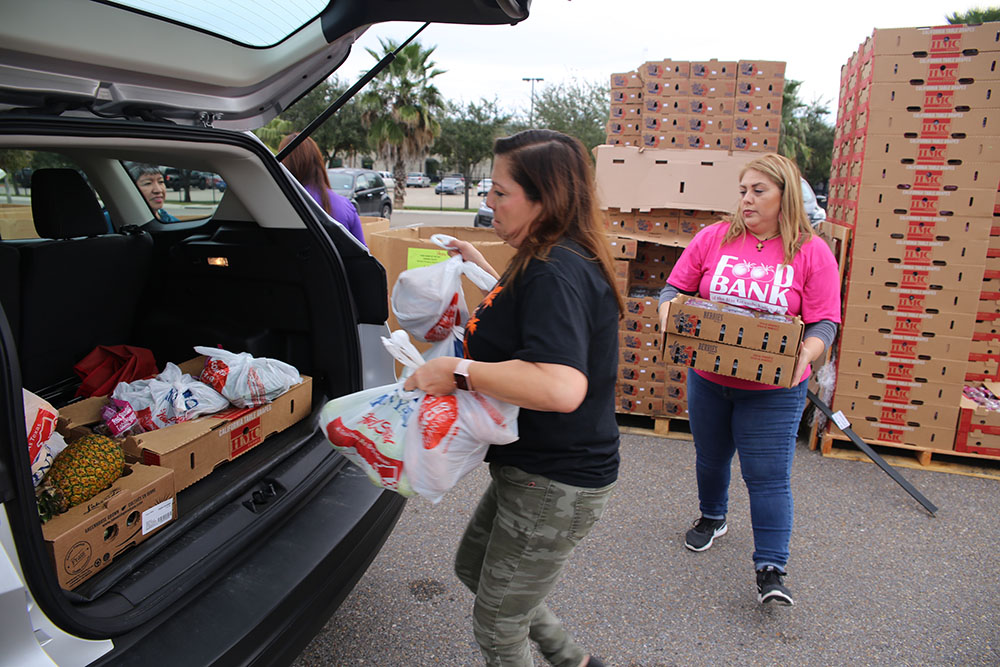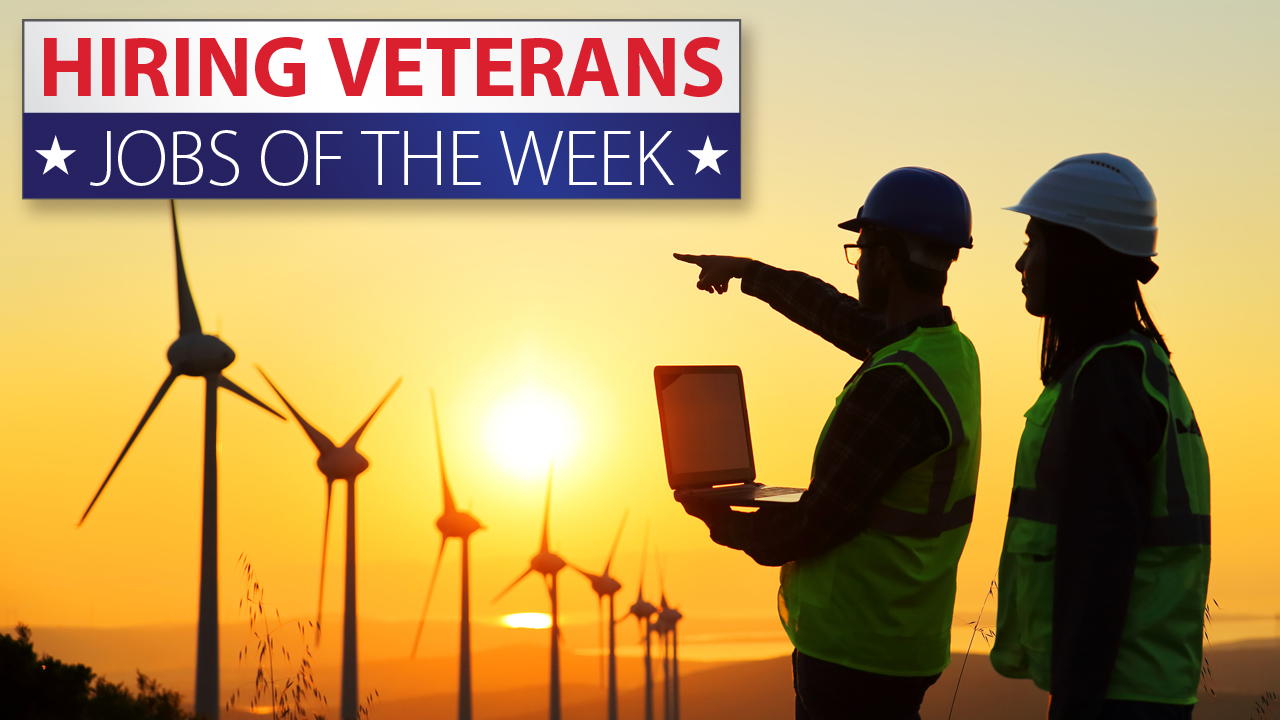For Tara and Todd Plybon from Taylor, Texas, driving three and a half hours to see family in Plano is a challenge with or without a global pandemic. Todd is a Veteran who deployed to both Iraq and Afghanistan during his 8 years in the Army National Guard, which he joined at age 32 right after the attacks of September 11, 2001. On October 15, 2009, while serving in Afghanistan, he survived an attack that resulted in a significant injury to his right femur.
Once he was out of the hospital and back in a home environment, “That’s when we realized how significant his brain injury was,” said his wife and caregiver, Tara. She said that sometimes the road trips are a challenge if her husband isn’t feeling well.
More than 7400 Facebook Portals given to Veterans
The Plybons are recipients of a free Portal from Facebook video calling device. The Portals are being distributed to certain eligible Veterans and their caregiver or other family member, thanks to a partnership with Facebook and the American Red Cross Military Veteran Caregiver Network.
“We sent one to Todd’s mom, so that way when the family gets together at her house, we can see everyone on the Portal,” said Tara. “The Smart Camera  keeps up with the people and the movement so nicely – Todd doesn’t get a migraine.”
Staying connected to family and friends is important for Veterans with physical disabilities and brain injuries. Though social isolation may be a new experience for some, for many Veterans it is a common experience.
“When you leave the military, it can be isolating. Then, if you have additional challenges connected to your time in service there can be an additional layer of isolation. Lastly, if you are in need of care for any of those challenges, then your caregiver, who is often a member of your family, has another layer of isolation for them too,” said Payton Iheme, Military and Veteran Policy Lead at Facebook.
“We know that technology is not a replacement for face to face interaction, but with Portal we hope to help reduce some of those feelings of isolation and give Veterans and their caregivers a way to connect with the people they care about. This builds upon the strong networks that Veterans and the Veteran community continue to build every day,” said Iheme.
The third partner in this effort is the American Red Cross Military Veteran Caregiver Network (MVCN), which leveraged the Red Cross’ Disaster Cycle warehouses to store and process the Portals.
“They are packed and shipped by amazing volunteers and incredible warehouse staff, some of whom are Veterans themselves,” said Melissa Comeau, Director of the Red Cross MVCN, a natural partner for this program. “Our entire mission is to reduce social isolation, and we really value technology.”
Veterans and families in VA’s Office of Caregiver Support program, VA’s Geriatric Services and Extended Care program, or individuals identified as at-risk for suicide by a VA provider are eligible to receive Portals through this program.
For Caroline and Brett Simpson (not their real names) in Chicagoland, Illinois, the Portals have certainly helped them navigate daily family life. But they have also served as a tool to help Caroline stay connected with caregiver resources and networks that have helped her navigate life as the wife and caregiver of a Veteran with significant post-traumatic stress.
Maintaining caregiver support virtually
When Caroline married Brett, the military and Veteran world was all new to her, and as a self-proclaimed “after wife,” she wasn’t knowledgeable about benefits and services for her family until she connected with several caregiver support organizations, like MVCN, Hearts of Valor, the Elizabeth Dole Foundation, and Caregivers on the Homefront. Prior to COVID-19, she had been connecting with support groups and even facilitated in-person meetings that brought caregivers together to share stories and resources.
“I can’t even count how many times I’ve video chatted through my Portal with other caregivers who are also feeling the isolation,” said Caroline. “We can see each other, and we can have authentic conversations that aren’t being interrupted by failures of technology.”
The Simpsons have leveraged both of their Portals in their own home—sometimes Caroline and Brett video chat each other from their separate workspaces on opposite sides of their home. They’ve used the music features, reminder features, and of course, the video chatting feature with family, friends, and other caregivers.
“It’s so much easier than holding my phone and trying to fit all of us on the screen,” said Caroline.
For more information on the VA Caregiver Program, visit www.caregiver.va.gov, or contact the Caregiver Support Line at (855) 260-3274 for more information.
Topics in this story
More Stories
The $100,000 Community Catalyst Challenge identifies trailblazing organizations and revolutionize how we engage with Veterans and their families.
The Social Security Administration is hoping to make applying for Supplemental Security Income (SSI) a whole lot easier, announcing it will start offering online, streamlined applications for some applicants.
This post contains jobs for the week of Dec. 16, 2024. Each week, we post relevant and timely listings as we receive them, and for the locations listed.







